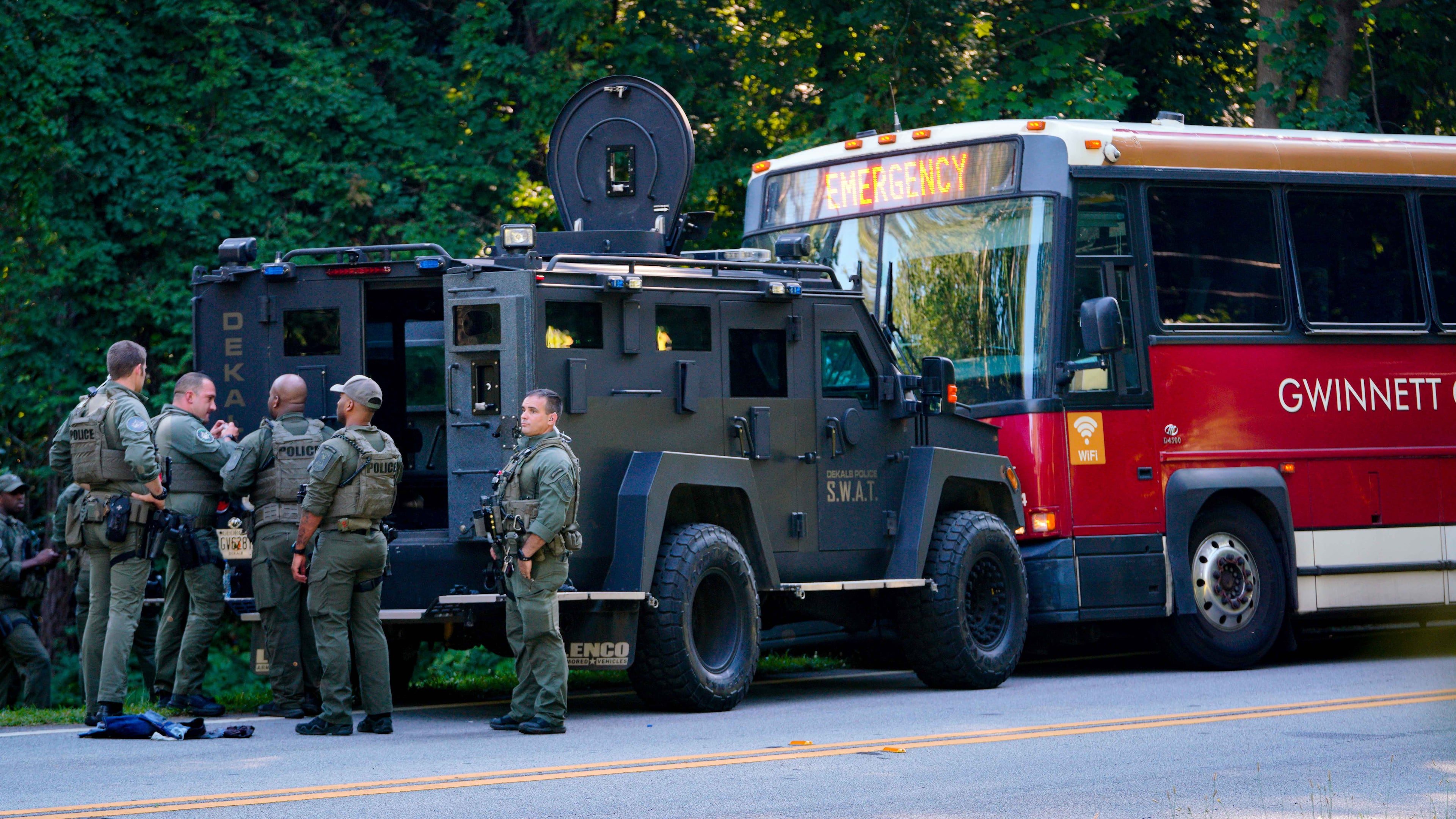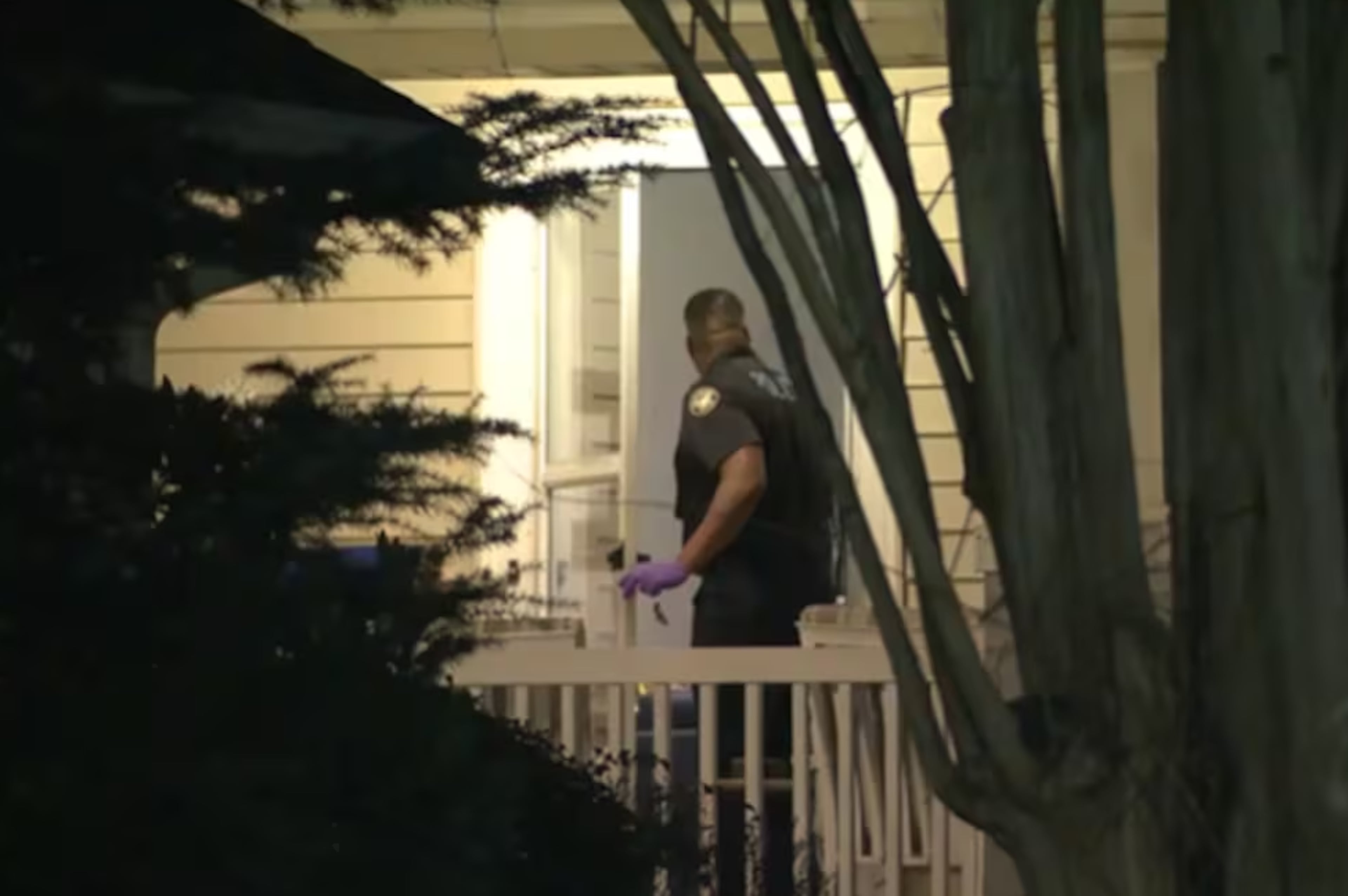High-profile violent incidents raise concerns in downtown Atlanta

Downtown Atlanta is never able to escape the spotlight, regardless of whether it’s positive or negative.
Downtown represents the capital of the Southeast, and its recognizable buildings and venues are the landmarks people think of when envisioning Atlanta. That prestige attracts Super Bowls and World Cup matches, but downtown’s image can also end up intertwined with high-profile violent incidents that stick in people’s memories.
Within just a few hours Tuesday, two traumatic events rattled workers and visitors in the center of downtown.
A shooting inside the food court at Peachtree Center left four injured. Two hours later, a bus was hijacked a few blocks away.
The hijacking suspect is accused of leading officers on a high-speed chase and killing someone on the bus. In an unusual development, the suspect in the bus hijacking had earlier told reporters he witnessed the food court shooting.
The chaos and brutality shocked the city and made national news, reinvigorating concerns over crime and whether Atlanta’s main business district can overcome perceptions that it is unsafe.
A.J. Robinson, the president and CEO of downtown business coalition Central Atlanta Progress, lamented that downtown incidents garner extra attention and scrutiny, but he said “it’s part of the territory” of being the face of Atlanta. He added that the city has overcome other headline-grabbing incidents in the past.
“They’re terrible incidents, and we need to do better from a public safety standpoint,” Robinson said. “But I don’t think these incidents themselves have that lasting effect.”
It all began at 2:15 p.m. with an argument inside The Hub, a food hall at the Peachtree Center office tower at 235 Peachtree St. Authorities said Jeremy Malone, 34, of Morrow, pulled out a gun and shot three people before an off-duty Atlanta police officer shot the suspect. Two people were taken to Grady Memorial Hospital in critical condition, while two others were taken to Emory Midtown Hospital.
About 4:35 p.m., 39-year-old Joseph Grier is accused by police of hijacking a Gwinnett County Transit bus at 45 Ivan Allen Jr. Boulevard, less than a half-mile away from The Hub. Police said there were 16 hostages on the bus, one of whom later died from a gunshot wound. The bus chase spanned Fulton, Gwinnett and DeKalb counties, ending about 5:15 p.m. near Tucker with Grier taken into custody.

Both men have lengthy felony rap sheets. Robinson said the incidents are more of an indictment on Atlanta’s justice system rather than a sign of the city center being unsafe.
“For whatever reason our justice system seems to be failing on those types of repeat offenders,” he said. “We need to wake up as a community. There’s just too many guns in Atlanta. There’s too many people solving their differences with people with guns.”
Peachtree Center is a series of skyline-defining office towers built by famed Atlanta architect and developer John Portman. Due primarily to the COVID-19 pandemic’s impacts on the office market, the 2.5 million-square-foot complex went through foreclosure in 2022, becoming the largest piece of Atlanta real estate to undergo loan distress since the fallout of the Great Recession.
One tower, 225 Peachtree, is completely vacant in case a developer wants to try to convert the building into another use, most likely apartments. The other five towers were 52% occupied at the end of March, according to Transwestern Real Estate Services, the leasing agency for the complex. The company declined to comment about the potential impact of Tuesday’s crime spree on leasing and tenant retention.
Stephanie Fischer, president and CEO of the Georgia Restaurant Association, which represents roughly 23,000 food and beverage businesses across the state, commended law enforcement for quickly responding to the shooting at The Hub food court. Safety is paramount for both restaurant workers and their customers, she said.
“Proper staff training is crucial so that in the heat of a crisis, employees can protect themselves and guests,” Fischer said in a statement.

Tuesday’s incidents notwithstanding, violent crime has actually ebbed in recent years. Homicides starkly increased after 2020 during the height of the pandemic, but 2023 saw a 21% reduction, according to Atlanta police. As of June 1, 2024, homicides were up slightly over the same period last year, but aggravated assaults had decreased 13%, police said.
Robinson said the perception of high crime is a constant battle for urban areas. While these incidents are often hard to forget, he said history has shown that Atlanta business and commerce tends to persevere through spurts of violence.
“These incidents — whether its infrastructure like water (outages), tornadoes or flooding, or police cars burning in front of CNN Center — don’t tend to have a lasting effect,” he said. “They’re brutal, but if you look at the history of downtown or anywhere in the commercial sectors around Atlanta, these areas for the most part are thriving.”



